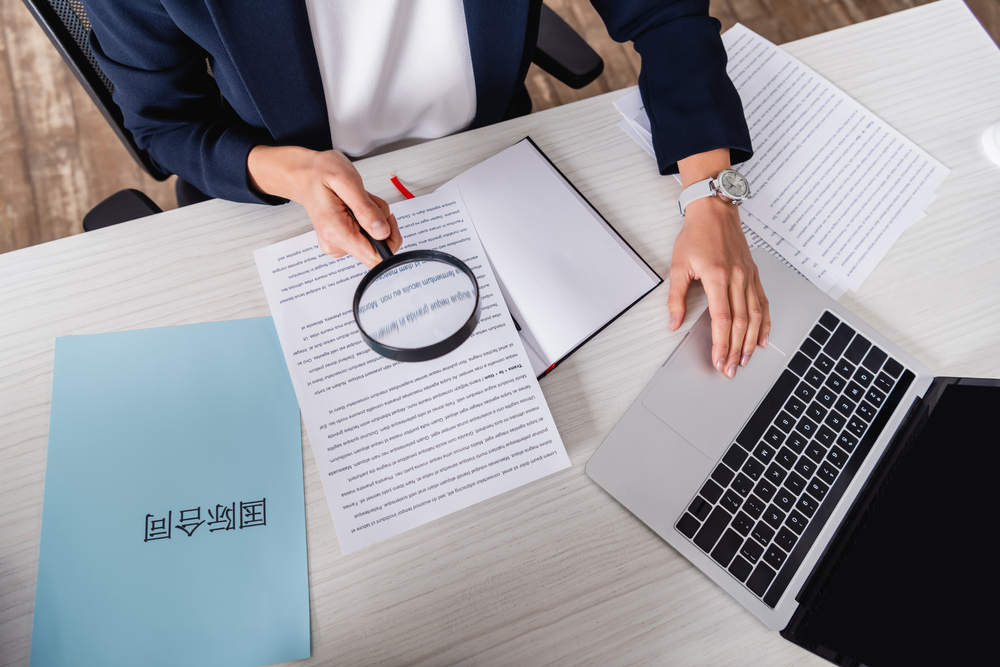
Legal Translation Services: Ensuring Accuracy in Contracts and Court Documents
In today’s increasingly globalized world, businesses and individuals frequently interact across borders. Legal documents—whether contracts, court rulings, patents, or compliance paperwork—must often be translated with impeccable accuracy to ensure enforceability and understanding. This is where legal translation services play a critical role. These services are far more than simple word-for-word translations; they demand a precise understanding of legal systems, terminology, and the nuances of both the source and target languages.
Why Legal Translation Services Are Essential
The Importance of Accuracy in Legal Documents
Legal language is inherently complex. It is built upon jurisdiction-specific terminology, intricate sentence structures, and binding implications. A mistranslation in a legal document—even something as minor as a missing preposition or an ambiguous verb—can completely alter its meaning and have significant consequences.
Legal translation services ensure that documents are not only linguistically correct but also legally sound. This involves a deep understanding of both the legal context and the terminology in the relevant jurisdictions. A professional legal translator will maintain the integrity of the original document while adapting it appropriately for the target legal system.
Common Legal Documents That Require Professional Translation
Legal translation services are frequently required across a wide array of document types, including:
- Contracts and Agreements: Employment contracts, commercial contracts, non-disclosure agreements, and service-level agreements must all be precise and unambiguous.
- Court Documents: Transcripts, judgments, pleadings, and evidence documents often require translation for international cases or appeals.
- Intellectual Property Documents: Patents, copyrights, and trademark filings need accurate translation to be recognized internationally.
- Regulatory Filings: Multinational companies often need to translate compliance documents, licenses, and certifications for multiple jurisdictions.
- Immigration and Asylum Documents: Visa applications, residency permits, and asylum case documents must be accurately translated to uphold the applicant’s rights.
Consequences of Errors in Legal Translations
Legal translation errors can be disastrous. A mistranslation might result in:
- Contractual Disputes: Ambiguity in translated contracts can lead to breach of contract claims or loss of business.
- Legal Invalidity: Courts may reject poorly translated documents, deeming them inadmissible.
- Regulatory Penalties: Inaccurate translations of compliance documents can result in fines or revocation of licenses.
- Reputational Damage: Legal errors can tarnish a company’s professional image, especially if publicized.
In worst-case scenarios, poor translations could result in lawsuits, criminal charges, or severe financial losses for businesses. Thus, the stakes for accuracy are exceptionally high in legal contexts.
How Legal Translation Services Ensure Compliance and Precision
Certified Translators vs. Standard Translators: What’s the Difference?
When dealing with legal documents, hiring a certified legal translator is crucial. Certified translators have undergone rigorous training and testing to prove their proficiency in both the source and target languages and their familiarity with legal systems. They may also be accredited by organizations such as:
- American Translators Association (ATA)
- Institute of Translation and Interpreting (ITI)
- National Association of Judiciary Interpreters and Translators (NAJIT)
Certified translations are often accompanied by a signed statement affirming their accuracy, which may be required by courts or government agencies.
In contrast, standard translators might have language skills but lack the legal expertise needed to translate documents reliably in a legal context.
Quality Control Measures in Legal Translation
Top-tier legal translation service providers implement stringent quality assurance protocols, including:
- Multiple Rounds of Review: Initial translation, editing by a second legal linguist, and a final proofread ensure accuracy.
- Glossary Management: Custom glossaries ensure consistent use of legal terminology across multiple documents.
- Use of CAT Tools: Computer-Assisted Translation tools help maintain consistency, speed, and version control.
- Subject Matter Experts (SMEs): Legal translators with specific domain expertise, such as corporate law or intellectual property, add a layer of precision.
These quality control steps are essential to producing legally compliant and linguistically flawless translations.
Legal and Regulatory Requirements for Translated Documents
Certain jurisdictions and legal processes require translated documents to meet specific criteria:
- Sworn or Notarized Translations: In some countries, translations must be sworn before a notary or certified by a court-approved translator.
- Formatting Compliance: Legal translations must often preserve the format of the original to ensure clarity and uniformity in legal interpretation.
- Jurisdiction-Specific Language: Terminology must align with the legal standards of the jurisdiction in which the document will be used, such as civil law vs. common law systems.
A qualified legal translation service will be well-versed in these requirements and tailor their services accordingly.
Choosing the Right Legal Translation Service Provider
Key Qualifications to Look for in a Legal Translator
When vetting legal translators or translation agencies, prioritize the following qualifications:
- Legal Expertise: Look for translators with a legal background or relevant certifications in legal translation.
- Industry-Specific Knowledge: Certain industries (e.g., pharmaceuticals, real estate, international finance) have unique legal terminologies.
- Multilingual Capabilities: Providers with multilingual teams can support cross-border projects efficiently.
- Cultural Competence: Understanding cultural nuances is vital in legal translation to avoid misinterpretations.
Furthermore, legal translators should have a track record of accuracy and confidentiality, supported by client references or case studies.
Questions to Ask Before Hiring a Legal Translation Agency
Before engaging a provider, ask the following:
- Do you employ certified legal translators?
- What is your quality assurance process?
- Can you meet jurisdiction-specific requirements?
- How do you handle rush projects and tight deadlines?
- What industries do you specialize in?
- Do you offer notarization or sworn translation services if required?
The answers to these questions will reveal whether the agency is equipped to handle complex legal translation projects with the rigor they demand.
How to Ensure Confidentiality and Security in Legal Translations
Confidentiality is a cornerstone of legal translation. The documents being translated often contain sensitive, proprietary, or privileged information. A reputable translation service will offer:
- Non-Disclosure Agreements (NDAs): Signed NDAs between all parties to protect confidential information.
- Data Encryption: Secure digital platforms and encrypted communication channels.
- Access Control: Limited access to documents to ensure only authorized personnel handle them.
- Secure Storage: Compliance with data protection laws such as GDPR or HIPAA, depending on the jurisdiction and industry.
By partnering with a translation provider that prioritizes security, businesses can protect their legal and commercial interests effectively.
Partner with Experts You Can Trust
Choosing the right legal translation partner is essential to mitigating risk and ensuring legal compliance in international dealings. At Etcetera Language Group, Inc., we specialize in providing legal translation services for corporations, law firms, and regulatory bodies worldwide.
Our multilingual team of certified legal translators delivers:
- Accurate, legally compliant translations
- Specialized knowledge across dozens of industries
- Flawless formatting and desktop publishing
- Robust confidentiality and data security protocols
Whether you need a single contract translated or ongoing support for global litigation, Etcetera Language Group, Inc. has the expertise to support your legal translation needs with the utmost precision and professionalism.
Contact us today to discuss how our legal translation services can protect your legal interests and ensure international compliance.
More...
Categorised in: Translation Services





